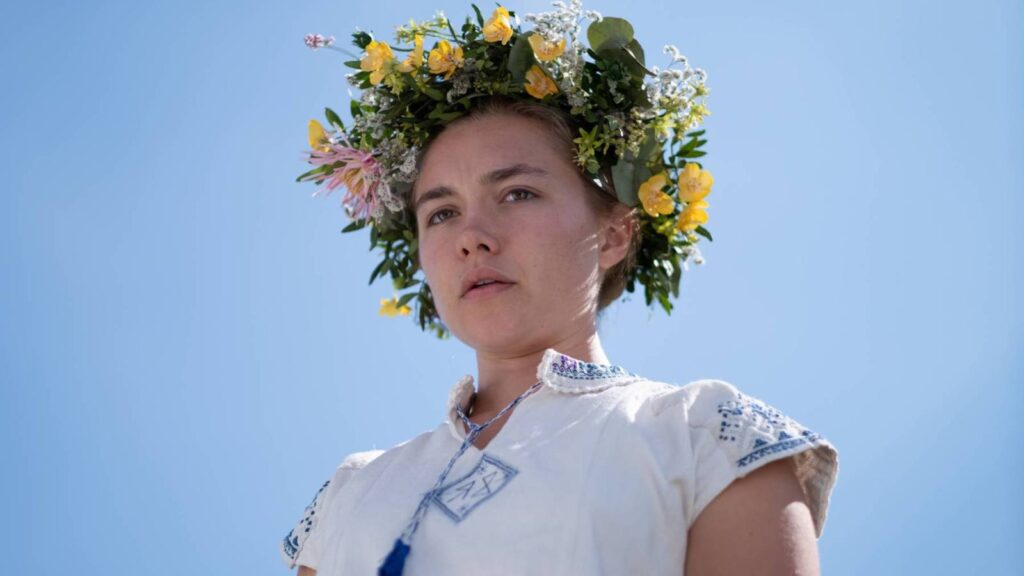Florence Pugh‘s portrayal of Dani in Midsommar remains one of the most extraordinary depictions of grief ever captured on the silver screen. Yet the emotional toll it took to bring those feelings of despair to life is not something Pugh is willing to endure again.
When stopping by the The Louis Theroux Podcast, the actress opened up about how “horribly real” the emotions she depicted on-screen were when making the Ari Aster-directed film, leading to six months of depression. In the film, the audience witnesses Dani experience a tragic family trauma involving murder and suicide. “The character is in such a horrible state in her life and she’s constantly on the brink of a panic attack,” Pugh said in the new interview, explaining that she had “never, ever been through anything close to that.”
“So for that, I’d really put myself through it,” she continued. “At the beginning, I just imagined hearing the news that one of my siblings had died. And then towards the middle of the shoot, it was like, oh no, I actually needed to imagine the coffins. And then towards the end of the shoot, I actually was going to my whole family’s funeral.” Pugh said that because she had never done anything like that before, she put herself “through hell.”
After Midsommar finished filming, Pugh headed to Boston to shoot Greta Gerwig’s Little Women, with just three days in between. As she was on the plane and leaving Budapest, where Midsommar was shot, the actress said she began weeping because she felt like she had left Dani to “figure out how to do the rest of her life.”
“My brain was obviously feeling sympathy for myself, because I’d abused myself and really manipulated my own emotions to get a performance,” said Pugh. “I just can’t exhaust myself like that because it has a knock-on effect. I think it made me sad for like six months after that.”
While the film may have been one of the most mentally arduous projects Pugh has taken on, the actress has praised Aster — who also wrote and directed Hereditary — in the past. In a 2023 New York Times interview, Pugh described the director as “peculiar in the mad genius kind of way.” She recalled, “He would do therapy sessions with Jack [Reynor, her co-star] and I in our characters. Ari would be our therapist and would be asking us questions. I find that stuff quite hard.”
In a Rolling Stone review of Midsommar, writer Peter Travers deemed Aster “a bold new voice in psychological horror, the kind that messes ruthlessly with your head,” and touted Pugh’s performance as working “wonders in showing us a character who grows in confidence and toxic strength as the film progresses toward Dani’s validating vengeance.”

